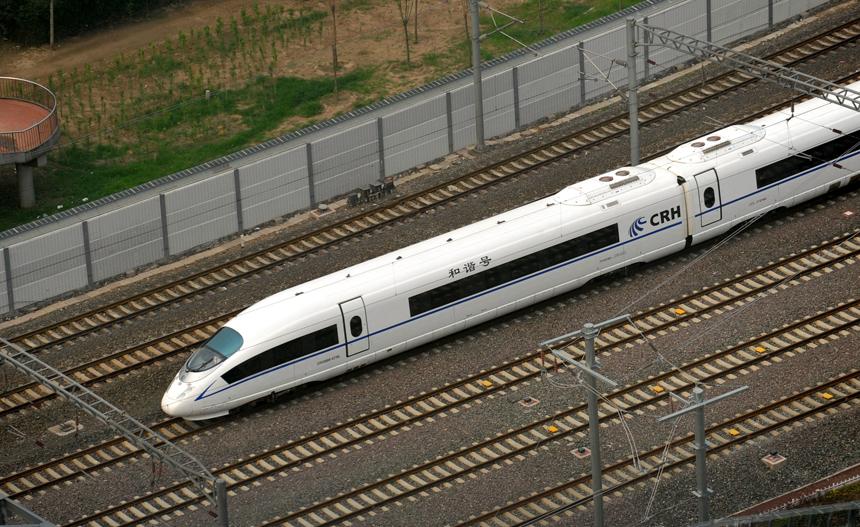
The first high-speed trains to travel on the new Beijing-Shanghai high-speed railway departed at 3 p.m. Thursday, with one train leaving Shanghai for Beijing and another train making the same trip in the opposite direction.
Premier Wen Jiabao attended the railway's opening ceremony in Beijing, boarding the Shanghai-bound high-speed train shortly thereafter. His train is expected to arrive in Shanghai at 8:09 p.m., while the train bound for Beijing is expected to arrive at 8:02 p.m.
The 1,318-kilometer-long railway links the country's prosperous Pan-Bohai and Yangtze River Delta economic zones, cutting travel time between the two regions to less than five hours.
The high-speed railway, which has been operating on a trial basis since mid-May, opened one year ahead of schedule.
"The big day finally arrived after three years of our hard work. Only 25 workers of our company were chosen to take the first bullet train. As one of the lucky guys, I'm very proud and excited," said Wang Shoutian, an employee of China Railway's 12th Bureau Group Co., which worked on the rail line.
Pei Zhiqiang, manager of China Communications Construction Co. said "The launch of the rail line shows our country's strength in the railway sector. All our hard work was worthwhile."
Although the railway is designed to handle maximum train speeds of 350 kilometers per hour, most of the trains will run at speeds between 250 and 300 kph.
He Huawu, chief engineer at the Ministry of Railways, on Monday dismissed rumors that the railway's operating speed was cut due to safety concerns.
"The adjustment to the operating speed of the railway was made to meet people's needs, to increase transport capacity and reduce costs and energy consumption," he said.
Tickets for the railway's fastest trains, running at 300 kph, are priced between 555 yuan and 1,750 yuan. Prices for slower trains, running at 250 kph, are priced between 410 yuan and 650 yuan.
The railway is expected to transport more than 80 million passengers annually.
Sun Zhang, professor at the Shanghai Tongji University, said the launch of the line will help promote urban-rural integration and sustainable regional development.
Cities on the way will benefit from the line. Qufu, hometown of Confucius, had no direct trains to Shanghai before the launch of the rail line. Han Fengju, deputy head of the local tourism bureau, expected the new line will help boost local tourism. "Visitors are likely to increase by 20 percent this year," he said.
Zao Zhuang, another city on the Beijing-Shanghai route, has attracted 40 billion yuan of investment due to the launch of the rail line.
Related News
Photos
More>>trade
market
- DHL to expand in western China
- China's state-owned bank does not rule out merger with Russian commercial banks:
- China says service trade to hit 600 bln USD by 2015
- Zijin Mining Group improves drainage, flood control systems after last year's
- Sino-Japanese E-waste recycling plant to be built in E China




